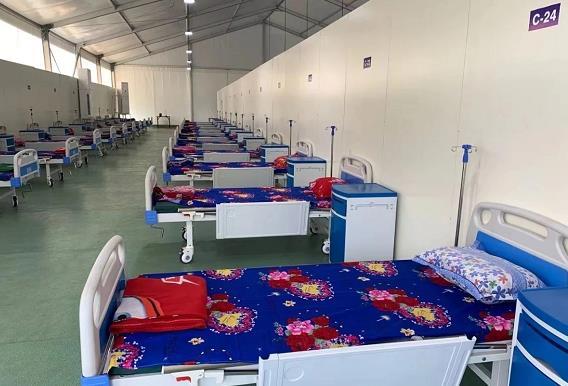
A makeshift hospital with 204 beds opened in Mandalay, Myanmar, on July 26, thanks to assistance from China's Kunming, Yunnan province, the sister city of Mandalay. [Photo/CCTV news]
A makeshift hospital with 204 beds, whose construction was aided by China, opened in Mandalay, Myanmar, on July 26, adding capacity for the treatment of COVID-19 patients.
The 2,200-square-meter hospital is equipped with 64 electrocardiograph (ECG) monitors, 12 ventilators and other medical supplies, thanks to assistance from China's Kunming, Yunnan province, the sister city of Mandalay.
The makeshift hospital boosted confidence among residents in Myanmar that they could effectively combat the coronavirus. Some said they no longer needed to fear the pandemic, given the help from China.
Since June, cases of COVID-19 have surged in Myanmar, with more than 5,000 newly confirmed cases daily and total confirmed infections exceeding 300,000.
An assessment of medical conditions in Myanmar found that hospitals were all overwhelmed and quarantine sites temporarily constructed in gyms were not only inadequate but risked spreading the virus is cluster environment.
With tenets of "friendship, cooperation, peace and development", Kunming authorities ordered a large-scale makeshift hospital with complete facilities that was easy to build and connect to ancillary equipment. They provided detailed guidance on transportation, storage and construction for Mandalay.
The hospital's construction showed the effectiveness of classification in treatment and of constructing different quarantine sites for patients with mild and severe symptoms. It serves as a reference for the development of hospitals in Myanmar.
Since the establishment of the sister city relationship between Kunming and Mandalay in 2001, cultural and economic interactions between the two have resulted in strong connections and deep friendship.
Both cites have committed to mutual aid in the prevention and control of COVID-19, with cross-border cooperation in fields such as public health, agriculture and transportation.
Feng Xiaojie contributed to this story.